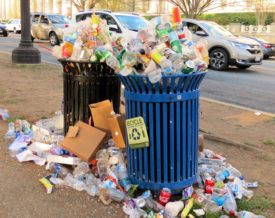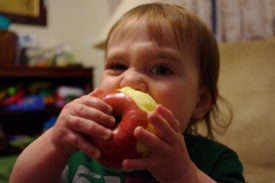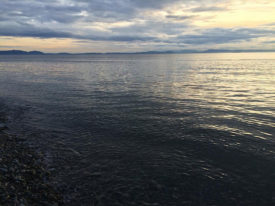We’re in day two of The Sound of Broken Promises, a six-day series on ailing Puget Sound from Seattle P-I reporters Robert McClure and Lisa Stiffler. I’ll have much more to say about the series later—it’s unbelievably good so far.
But today I’ll just briefly mention how much I love the “narrative thread” that the P-I is using to stitch the series together: they’re telling the life story of a real orca, probably born around 1911, that is still plying local waters as the matriarch of her clan.
Humans have a number and name for her: J2, Granny. Researchers identify her by the nick in her fin, the white patch on her back and the scratches on her side. The littlest ones, flopping and plopping out of rhythm with the adults, mouth Granny’s fins and rake her side with their sharp new teeth.
The story of Granny’s life is, obviously, historical fiction because you can’t really interview a whale.
In any event, the story of the elderly orca traces the arc of the major human impacts on Puget Sound. From boomtown Seattle and its raw sewage, through gunshots from fishermen, through industrial pollution, through live-captures from aquarium collectors, to present-day whale watching hordes… this one whale has lived through it all. Literally.
As it turns out, the story of Granny is in many ways really the story of changing human attitudes toward the natural world.
I’m fascinated by the story for two reasons: 1) it’s a really good story; and 2) it invites readers into the rest of the story: the high-caliber research and writing of McClure and Stiffler. And the story of what’s happened to Puget Sound’s ecology. We have four more installments yet to go and I can hardly wait to read them.
Here’s day one and day two of Granny’s story. But I’m warning you: our treatment of orcas hasn’t been all that rosy, so don’t read these if you don’t have a strong stomach.







